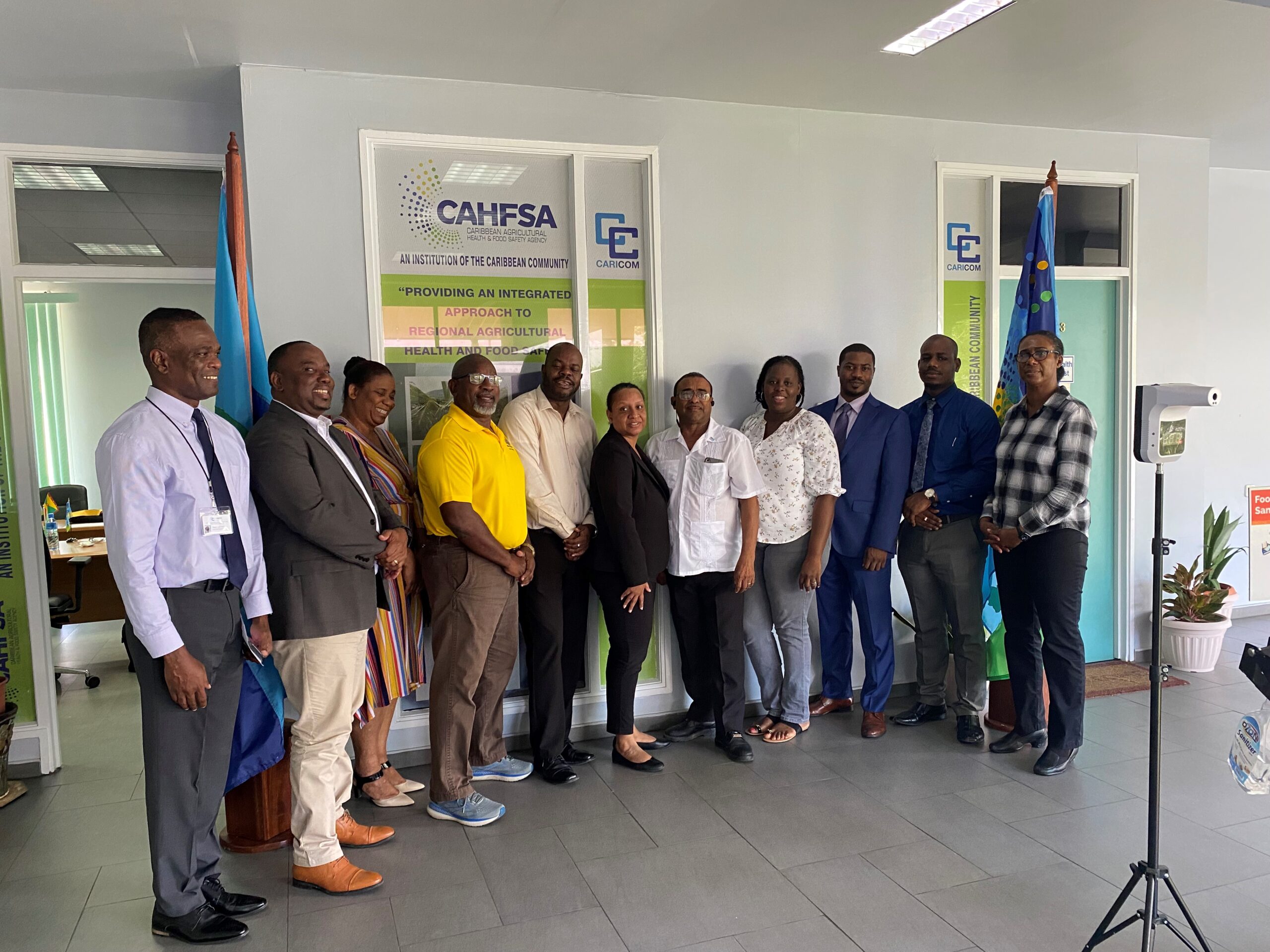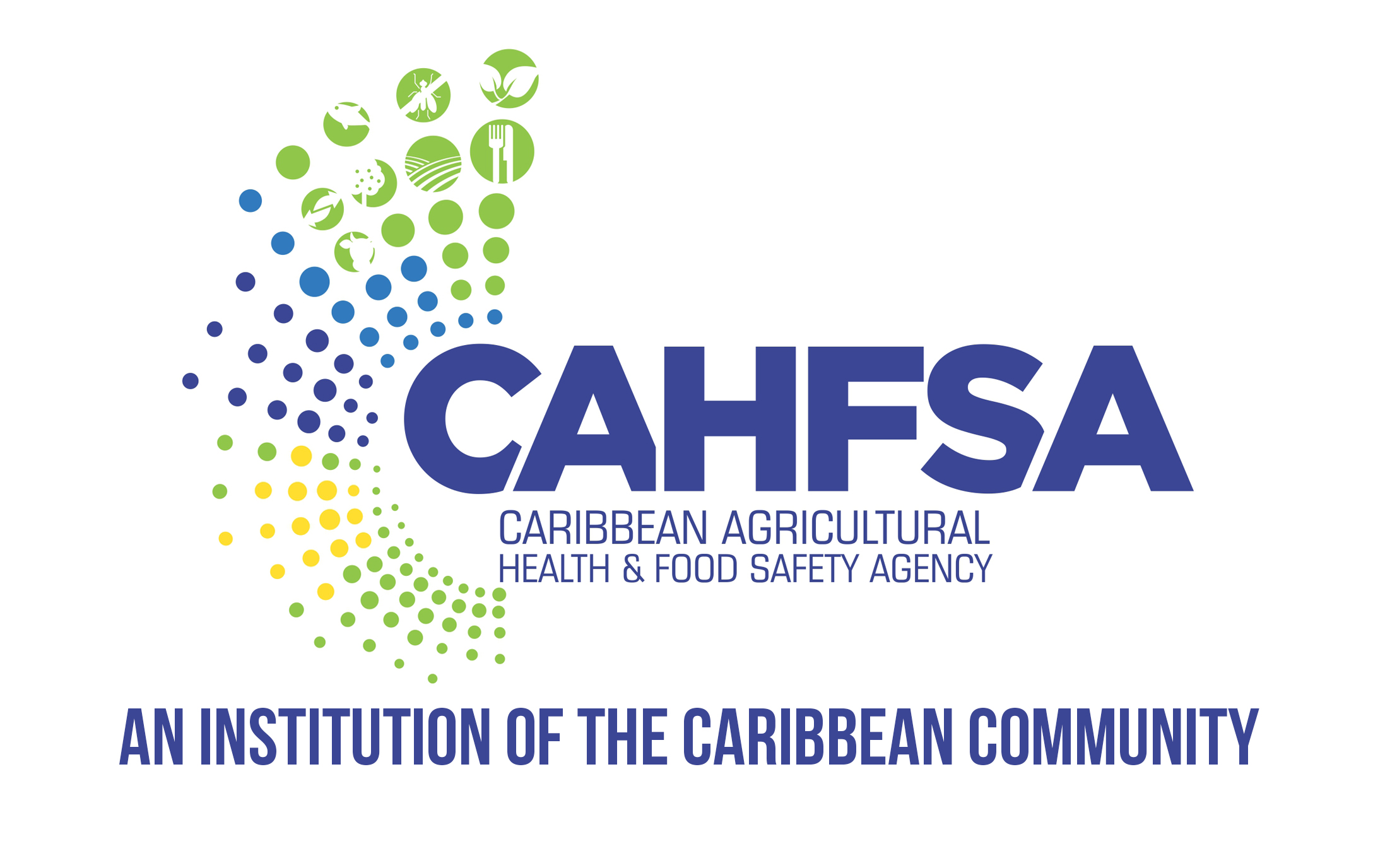
Organization
CAHFSA was created as an Inter-Governmental Organization by the signing of an Agreement among Member States of the Caribbean Community. This Agreement establishing CAHFSA was originally signed by Member States of CARICOM in Roseau, Dominica, on March 12, 2010. Six (6) days later, on March 18, 2010, CAHFSA was officially launched and a Headquarters Agreement for CAHFSA was signed between the Secretary-General of CARICOM and the Government of Suriname. On February 25, 2011, the Agreement establishing CAHFSA was replaced by the Revised CAHFSA Agreement at a meeting of CARICOM Heads of Government held in St. George’s Grenada.
In October 2014, CAHFSA became operational with the appointment of a Chief Executive Officer.
Located in Paramaribo, Suriname, CAHFSA is governed by a Board of Directors comprising one representative of each Member State representing the specialized areas of focus of CAHFSA as well as a representative from the CARICOM Secretariat who is represented on the Board as an observer. The day-to-day activities of CAHFSA is managed by a Chief Executive Officer and three (3) Department Heads.
Mandate
CAHFSA is mandated to perform a coordinating and organizing role for the establishment of an effective and efficient regional sanitary and phytosanitary (SPS) regime and to execute on behalf of Member States such SPS actions and activities that can be more effectively and efficiently executed through a regional mechanism.
Legal Instruments
The following Agreement gives force to CAHFSA:
- Revised Agreement Establishing the Caribbean Agricultural Health and Food Safety Agency (CAHFSA): February 25, 2011;
- Revised Treaty of Chagaramas (Articles 57 and 74).
Objectives
PRIMARY OBJECTIVES
The primary objectives of CAHFSA are to :
- establish an effective regime of sanitary and phytosanitary measures pursuant to Article 57(1)( k) of the Treaty, in support of the goals of the Community Agriculture Policy as set out in Article 56 of the Treaty;
- provide regional and national support to the Community in the establishment, management and operations of their national agricultural health and food safety systems as they relate to the sanitary and phytosanitary measures of the SPS Agreement; and
- execute on behalf of those countries such actions and activities that can be more effectively and efficiently executed through a regional mechanism.
SPECIFIC OBJECTIVES
- facilitate the development and use of regional, as well as international standards, measures and guide lines;
- facilitate the harmonisation of technical procedures in relation to matters such as Good Agricultural Practices (GAP's), Good Manufacturing Practices (GMP's), Hazard Analysis Critical Control Point (HACCP), quarantine systems and surveillance and good laboratory practices and services;
provide a framework for the:- continuous monitoring and evaluation of national and regional agricultural health and food safety programmes;
- conduct of tests; and
- provision of technical support directed at strengthening the respective programmes ;
- provide a framework for the identification and definition of the human and financial resource requirements of national health and food safety systems, and the determination and execution of strategies to address deficiencies, including the training of personnel and the mobilisation of funds;
- provide a mechanism for achieving regional consensus on sanitary and phytosanitary issues that can be represented in international fora;
- provide a mechanism for the coordination and integration of technical support to stakeholders by relevant regional and international organisations;
- provide an effective mechanism for partnership in the efficient use of human and financial resources and infrastructure, including laboratory services, in
- protecting human, plant and animal health;
- provide an effective mechanism to respond rapidly to emergencies and emerging issues;
- strengthen the policy and legal framework for sanitary and phytosanitary issues; and
- provide a framework for communicating changes in sanitary and phytosanitary measures with a view to ensuring transparency and compliance by Contracting Parties in a timely manner.
Vision/Mission
Vision
To be a leading regional institution of international repute in the application of Agricultural Health and Food Safety Systems.”
Mission
“to enhance regional development in agricultural health and food safety through the application of SPS Measures that meets the expectation of all stakeholders and contribute to the welfare of our citizens.”
Core Values
THE ORGANIZATION IS COMMITTED TO:
- Accountability
- Transparency
- Integrity
- Confidentiality
- Good Governance
- Inclusiveness
Advisory/Collaborting Bodies
- Committee of Caribbean Plant Health Directors (CCPHD);
- Committee of CARICOM Chief Veterinary Officers(CCVO);
- Caribbean Regional Fisheries Mechanisms (CRFM)
- Caribbean Task Force for Food Safety (CTFS)
- Agricultural Health and Food Safety Systems Thematic Working Group
- CARICOM SECRETARIAT
- FOOD AND AGRICULTURE ORGANIZATION (FAO)
- INTER-AMERICAN INSTITUTE FOR COOPERATION ON AGRICULTURE (IICA)
- CARIBBEAN AGRICULTURAL RESEARCH AND DEVELOPMENT INSTITUTE (CARDI)
- CARICOM REGIONAL ORGANIZATION FOR STANDARDS AND QUALITY (CROSQ)
- CARIBBEAN PUBLIC HEALTH AGENCY (CARPHA)
- OECS SECRETARIAT
- NATIONAL AGRICULTURAL HEALTH AND FOOD SAFETY AGENCIES AND STEERING COMMITTEES IN MEMBER STATES
- PAN AMERICAN HEALTH ORGANIZATION (PAHO)
